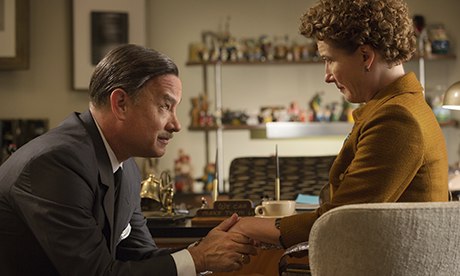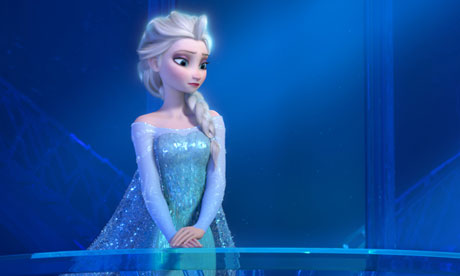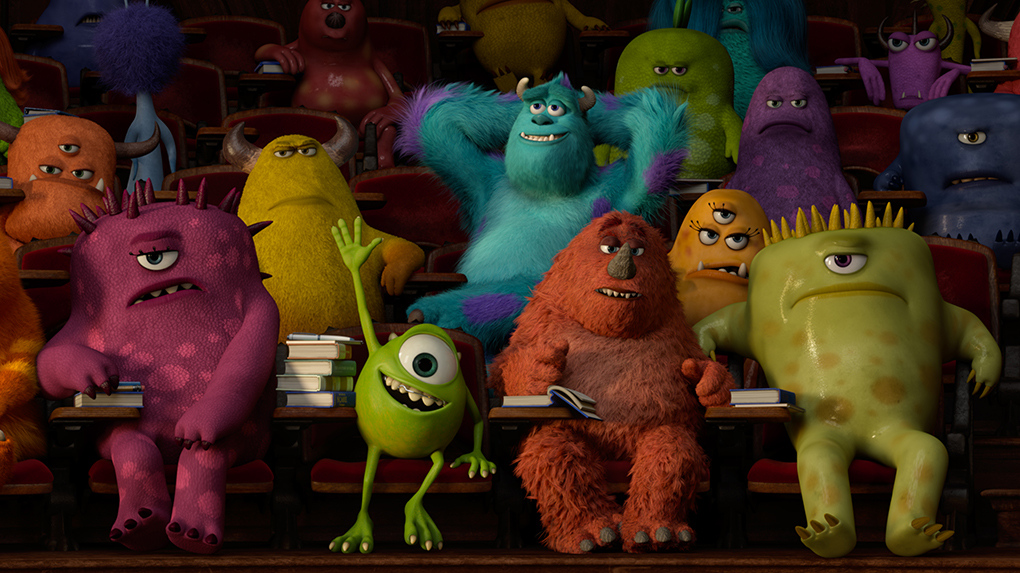
Disney Does Disney
by Hunter Isham
I've been drinking the Walt Disney Company kool-aid since before I could read and write, so my interest level in Saving Mr. Banks, the film that tells the story of how Walt Disney finally got Mary Poppins author P.L. Travers to sign over the film rights to her books, was fairly high both during its production and leading up to its release. Although I can see its shortcomings, I was absolutely charmed by its excellent cast and surprisingly nuanced screenplay. Banks comes not just from the family-friendly, whitewash machine that is the Mouse House, but also from John Lee Hancock, director of the good yet overrated The Blind Side, so the potential for this film to get too sappy for its own good was never out of the realm of possibilities. However, Hancock and his team have delivered a film that manages to fit the Disney mold while delivering a story with real meaning.
Anyone expecting Banks to be a story about Walt Disney, or even about the film Mary Poppins, will be in for a rude awakening, as it looks to Mrs. Travers and recalls how her childhood in Australia inspired her writing later in life. These flashbacks to a kind, young-at-heart father with a terrible drinking problem help to shade Travers' fierce protective attitude toward Walt and his creative staff when they attempt to pitch her on their vision of her stories for the big screen. She fears that old Uncle Walt will turn her stern flying nanny into a twinkly cartoon, and she simply cannot abide by cartoons. That sentiment seems at once silly and horridly uptight, but the film avoids the caricatures that Travers and Disney could so easily be portrayed as with a script that is brought to wonderful three-dimensional life by a stellar cast.
Emma Thompson is fantastic as the aggressively dour Mrs. Travers, bringing a warmth and logic to the author's feelings and actions that make her simultaneously sympathetic and charmingly annoying. Thompson knows just how much heart to bare, and just how much to cover up, making the subject of her portrayal a misunderstood person worth rooting for, no small feat when her adversary is Walt Disney himself. Tom Hanks brings a similar balance to the legendary animator and mogul, showing him as a businessman, public persona, storyteller, and, ultimately, a human being. Although Hanks looks nothing like Disney, and doesn't sound much like him either, he slips the persona on like a glove, and disappears despite his own iconic traits as an actor. Colin Farrell is wonderful as Travers' playful but troubled father, bringing humor and depth to a role that could easily have been two-dimensional. Bradley Whitford, Jason Schwartzman and B.J. Novak perfectly inhabit the roles of Mary Poppins writer Don DaGradi and the songwriting Sherman brothers, respectively, conveying the honest exasperation that comes from trying to please two artists at opposite ends of an opinionated spectrum. Paul Giamatti is warm and pleasant as Travers' driver Ralph, a character whose daily cheer would have been hard to endure were it brought to life by a lesser talent.
Such a strong ensemble would be wasted were it not for Kelly Marcel's screenplay*, a work that perfectly straddles the line between honest emotion and sentimentality, something the best of Disney entertainment has done for decades. It humanizes both P.L. Travers and Walt Disney, the former as a strong-willed individual whose difficult past colored her future, the latter as a businessman who serves imagination before profitability. She could have been a shrew, and he could have just been the charming television persona audiences knew from The Wonderful World of Disney. There are certainly moments when the story and its events can be presented as just a bit too on-the-nose, yet with the characters handled with such deft care, Saving Mr. Banks manages to be about something more than its purportedly "untold story." It's about catharsis, specifically that which can come through storytelling and imagination. Hanks delivers a knockout of a monologue near the film's conclusion that, though most likely fictionalized**, explains Disney and Travers' bond as artists who seek to right the wrongs of the world, to deal with life's regrets through inspiration and invention. The Walt Disney Company has, in a sense, done this with Saving Mr. Banks, clarifying its history without totally rewriting it. The story onscreen may not be completely real, but the people that inhabit it certainly feel real, and that's all that I could ask. 9/10
*Also credited is writer Sue Smith, but my understanding is that she wrote a more all-encompassing script about Travers' life that went un-produced, and was ultimately used more as a research tool for Marcel, and perhaps was partially repurposed in pieces for the flashback sequences in this film. When all is said and done, Saving Mr. Banks is Marcel's work.
**The circumstances of the scene are likely invented for the film, not its content, which involves to Walt's childhood in Missouri.


















